On this episode of POD99 we talk with Jason Cozens who is the is the founder and CEO at Glint - a platform where users can digitally buy, sell, send, and use gold as everyday money. As inflation continues to eat away at the savings of everyday people, alternative assets such as gold and tokenized precious metals provide a possible solution.
https://www.wealth99.com/
https://glintpay.com/
Andy Pickering - Host
You're listening to Pod99, a podcast by Wealth99 That helps the 99% take control of their financial future, we talk to experts from across the alternative asset space, who share their insights on new wealth, how to build it, and how to keep it. Let's get on with the show. My guest today is Jason Cozens. Jason is the founder and CEO at Glint, which we'll learn all about today. Essentially, it's an onboarding platform to the world of gold. Welcome to the show Jason.
Jason Cozens - Guest
Hi, Andy. It's great to be on the show.
Andy Pickering - Host
Great to have you here. Jason, let's do what we should do at the beginning of the show, I'll invite you to please introduce yourself, I'd love to just hear a little bit of your professional story and, and the lead-up to your founding Glint?
Jason Cozens - Guest
Well, Andy, I studied architecture originally at seven years, learning how to design buildings. This is architecture of physical buildings, not engineering, which is a fantastic education. And it involved obviously, design, creativity, technology, understanding business briefs, all that type of thing, it turned out to be the perfect education for me entering in as trying to take advantage of what was to be the growing, digital ecosystem that started in the late 80s, early 90s. When I came out of architecture, I got involved in virtual reality, and the first time it was cool. I was busy visualising what the Sydney Olympic Stadium looked like before they built it the same as Wembley, the same with the Queen's St. George's Chapel when it burned down. You know, they asked me to do that, this isn't the time when Pixar, where visualising that bouncing lamp. So it's very early days of VR, it was quite uncommon, not very many people doing it. And, from there it was a natural place for my company, Visuality, to pivot into also building interactive multimedia, and then web and then E-commerce platforms. And, my company developed, you know, e-commerce solutions for some of the top high street retailers in the UK and some of the manufacturers across Europe. And that was the world I was in. It was in this very optimistic world. I think, you know, any young people who have grown up with the internet might find it hard to understand what it was like back then, because the internet was just emerging. So we had all these fantastic utopian ideas about what this was going to bring society. And, you know, I've remained a very positive person. But in 2008, when the global financial crisis happened, things started to change for me. And it started with me realising that your money in the bank is not a risk-free deposit of funds. When you put your money in the bank, it actually ceases to be yours, they lend it out, and they owe it back to you, it's part of their liabilities. And so you've effectively invested in them and what they have invested in as well. And for that, you would normally get an interest rate. But of course, many people might not have never experienced high-interest rates until just very recently. But at the time as you might know, banks were going bust. I started thinking.....how is it that what is the solution if you just want to save your hard-earned money without putting it at risk? What's the solution to that? And I learned about gold. And I learned that it's the ultimate store of value. Well, if you looked at the way around the purchasing power of the pound, and the dollar, for instance, had lost, they'd lost more than 85% of their purchasing power. Let's just think about that. I mean, nearly becoming worthless, surely 85% gone of the purchasing power in my lifetime. And yet gold's purchasing power had gone up 500% and it's still bought you what it did 2000 years ago never mind 50 years. It backed the US dollar until 1971 and they didn't come off the gold standard because he didn't think gold was a good idea. They came off the gold standard for the very opposite, which was that they thought gold was wonderful. Central banks still hold gold. The US still hold gold as a central bank. Why did they come off the gold standard? Well, they couldn't afford to pay for the things they were promising the electorate, they couldn't afford to pay for the wars and couldn't afford to pay for the Vietnam War at the time. And they were tempted to print too much money, the temptation and the attraction of printing money and being able to use that money to effectively execute any kind of project by handing out you know, this cash which had just been come through the printing machine or come off the magic money tree whichever way you want to describe it, it was too attractive to them, and they just came off the gold standard. And, from that point, of course, we've had all this money printed.... huge amounts. I mean, just in one year, if you take all of the US dollars in existence, all of the US dollars in all the countries ....20% of all US dollars were printed during the pandemic as an example. So, I was thinking well, if it's such a great store of value, can't we allow enable it in electronic payments? You know, just because of the government's decision to take us off a gold standard. Why can't we have our own personal gold standard? And what a tantalising possibility of creating a bottom-up return to what I call sound money, he was too, he was too exciting an opportunity for me, I thought wow. Once I had the idea, and I realised the possibilities, I thought I can't end up on my deathbed thinking, what if? What if I hadn't tried it? So that's when the journey began for me towards Glint.
Andy Pickering - Host
I love it. All right, well, it'd be good to learn a little bit about what Glint is. Then Jason you know, here at the Wealth99 platform, one of the things we're trying to do - it's the wealth 99 mission really - it's about making alternative assets available to the 99%. So that average, everyday people all around the world can access the kinds of financial opportunities once only available to the elite. And how are we doing that by harnessing the unique power of blockchain asset tokenization, creating truly diverse alternative asset investment options and making them available through a user-friendly platform, and that can include crypto assets, but it also includes precious metals, gold, silver, platinum, and I know this is your area of expertise, Jason and the story of gold. It's really the story of money, right? It's the story of humanity, the story of trade, and economic activity. So you know, I'd love for you to explain this a little bit. Any way you want to approach this? Tell us what you think about the history of gold and its role as sound money.
Jason Cozens - Guest
Yeah Okay. So what is money? Let's start with that. Maybe if you were to do something for me, I say, Andy, can you help me? I'm building a house at the moment, can you help me? And you said, I'm pretty busy and everything. But yeah, I can spare some time. And U say please come and help you do this for me and I'll do something for you later. Yeah, maybe next year? And, in fact, can I have just two days of your time, I need your help me move these heavy beams. And, you came in. You did that. And I would owe you one - my IOU to you. Yeah, I would owe you two days of labour. The problem with this is, so it's a really, it's kind of money is for me, it's a ledger of the promises between people is a really nice concept, actually, you know, we help each other and we do things for each other. And money is the ledger of those IOUs that we owe each other because we know kind of the problem is, is that we need that ledger, of course, because we can't be trusted or to either just innocently forget what we heard each other say, or otherwise. And so the ledger is important. And so we've derived money. And, you know, if in two years' time there, you said, Hey, Jason, you know, you owed me, give me two days of your time, too. And I said, Oh, either, you know, either I forgot. Or I said no. Or I said yes. But actually, you know, there's this thing called inflation. And now, now I am only gonna give you one and a half days, you'd be pretty upset about that, you know? And so, the ledger has to be something that's immutable. That's a really nice word. It's something that can't change. And money, you know, we've attempted all different types of money for 1000s of years of civilization. And over the 1000s of years, you know, people have tried all different types of things. But the one that stood the test of time is gold because gold is immutable. Its nature is not defined by human beings, it cannot be changed and therefore cannot be corrupted. It's actually created when two new bronze stars collide. And it makes its way through space and lands on our planet. And it's reasonably evenly distributed across the planet. And it's immutable, it can't change, it can't corrode. And it's, it's just that that test of time. And instead, all the different cases, use cases, and it's gone through all the problems has been through pandemics, it's been through wars, it's been through great expansions and contractions of economies, and it was just a fantastic ledger, you know, we could trust it. So sound money is money that I think can't change, it can't be corrupted, it can't be manipulated in any way, you can rely on it, it's sound. So the only thing about gold is that as I said, up until 1971, to head back the US dollar and, you know, those dollar notes actually used to say can be IOU this money, and it's actually backed by gold. And you know, you can exchange it for gold. And when they came off that gold standard, of course, they could print as much as they want. But gold itself, if it's such a great store of value, the problem with it recently, well throughout history actually is one slight impediment has been its medium of exchange. And so it was worth so much that you couldn't actually pay for small things with your gold because it would just involve such a tiny amount of gold, it'd be very difficult to deal with that. So we invented other forms of money to kind of deal with the smaller denominations such as silver, nickel and copper and things like that. So there were two issues really for me it was that, well, the store of value is awesome, but I can't use it to pop down to the supermarket and pay for my cornflakes with gold. Because we now live in an electronic payment system. How do we do that? And how do we do it in small denominations? And so that's what we did with Glint we built this payments and trading platform, it's a kind of trading and payments hybrid that does that very thing allows you through our app to be able to buy gold, and this is real allocated gold that sits in a vault in Switzerland. And we'll come back to the types of gold later. But it's real if you own it with nobody else. And you can buy as little as one cents worth or millions of dollars worth depending on how much you have. And when you buy that gold is there. And then with the Glint MasterCard, you can link that to your gold wallet, and when you spend it with the merchant when you swipe it, a request comes through MasterCard, it gets sent to glint, and our platform within you know, a few 100 milliseconds, authorised that trans authorises that transaction or not, and if it does authorise it, we just sell a little bit of your gold just enough at that current price to be able to, you know, cover the transaction, the proceeds of that transaction then sent through MasterCard to the merchant. So you just use gold as EVERYDAY MONEY. And so we deal with that decimalisation or the small, small amounts of gold, we deal with its ability to be used everywhere in the world. And we've now got, I think, 165,000 clients across the UK in the US, we're onboarding about 10 or 15,000 a month, and the words getting out there that you don't have to just use fiat currencies. Obviously, cryptocurrencies are out there too. But you can use gold, you can use gold as EVERYDAY MONEY. And I think that the nice thing about it is it's valued and accepted as a fantastic source of value all over the world by everybody.
Andy Pickering - Host
Yes, that's exactly right, Jason. And of course, that is the story of gold. Gold is a proven store of value over 1000s of years. And it is, in fact, the only proven store of value, or sound money over that extended period of human history. Now, of course, gold does have some disadvantages. For example, gold is not super portable, it's not easily divisible. It's hard to store and look after it's difficult to transfer. I can't just send a little bit of gold to someone on the other side of the world. But as you've explained, Jason, you know, this is what platforms such as Glint, seek to solve, and that is where Wealth99 can help, as well. I think we're just doing it in a different way. So, Wealth99 is about giving investors access to tokenized precious metals - gold, silver and platinum via the blockchain. So I think you can see, Jason that there are different paths to the same goal, if you like, you know, it's not just about restoring the purchasing power of gold, but it's about giving access to gold and other precious metals to different investors all around the world, right?
Jason Cozens - Guest
Yeah, I mean, it's wonderful. I mean, what we're talking about here is the fractionalization and through that, the democratisation of access to assets - whether it's gold, whether it's property, we've seen it in arts, we've seen it with wine, we've seen it with fashion. You know, it's, it's wonderful, really, you know, there has been through the fiat currency system and continues to be a huge driving inequality in the world, which has put, a lot of things out of the reach of many, many people. And I think it's great that all these initiatives using technology, allow us to get access, allow everybody to get access to our vision, our vision is a world where everyone has an equal opportunity to prosper. And I think that's what this technology is delivering.
Andy Pickering - Host
Brilliant, I could not have said it better myself, Jason, I love that. And I'd love if you could paint a picture, then a Jason of us, I know, you're passionate about this, just a little bit about, where we are today in the world, with inflation really running rampant, and global central banks having to just keep pumping up those rates to try and bring inflation down. But man, it is a tough time and the world for just the average everyday person because, you know, they're just seeing their savings. eaten away, aren't they Jason?
Jason Cozens - Guest
Yeah, unfortunately, again it's a tsunami of inflation. And one, as you said, that most people have never experienced before. If you're, in a way fortunate enough to be a little bit older, you might have felt or experienced or heard about your parent's experiences at the end of the 80s, which I did, and my parents lost their business at the end of the 80s. And, you know, it's kind of very visceral, because it was obviously a very disruptive time, as interest rates shot up, of course, mortgage rates on buildings and businesses, loans and stuff did too. And as I said, a lot of people lost their businesses, a very poignant kind of time. But of course, that was such a long time ago, for many people, some young people have never, some people have always experienced a world with the internet, for instance, and some people have always experienced a world where interest rates are very low, if not negligibly, or zero, or even negative in parts of Europe. So it must be very, very strange for them to suddenly see this raging inflation. I was on a panel, the modern affluence panel the other day. And I asked the audience, how many of you have had a mortgage when interest rates were greater than 5%. And only five people put their hand up in the audience? And that was really telling. I think if you've experienced this before, at least you're slightly prepared for it. But I do wonder what other people must be thinking about this. Lots of people I talk to so well, yes, I remember when interests where rates were, you know, mortgages were, in their teens. And so it's really shocking, and, but what's causing this, and I do resent, people within government, and even I think an ignorance within the media, who blame it all on things like supply chain issues after COVID and the war within Ukraine. It's like, hang on a second, inflation, for instance, in the UK was already at 7%. When Rishi Sunak our Chancellor got up and said, Oh, yes, all this inflation is very transitory. It's only caused by supply chain issues and the war in Ukraine. I'm sorry, the war in Ukraine only started five days before he said that. And actually, the only person who I've actually within from the establishment who I've actually heard you talk any sense is Mervyn King, who's one of the former governors of the Central Bank of England, who actually just I think two weeks ago said on TV that Yeah, so it's to do with loose monetary policy. It's to do with money printing, they printed too much money. They were already printing a lot of money. They went into COVID Whilst the economy was shrinking, they even printed even more and that's that is the cause of inflation. The inflation of the money supply creates inflation of prices, the increasing cost of living. So, it's inevitable. And actually, you know, we all vote for it in a way, we all vote for politicians who continue this fiat currency system that allows for this printing of money. And for politicians who, you know, espouse more money printing, to deliver promises to the electorate that you know, things that we want. And so maybe it's inevitable that if we want things, and we're not prepared to kind of save up for them, then we'll print for them and let our children and grandchildren pay for them further down the line. But that's the danger is that we leave a legacy for people down the line, which I don't particularly agree with, you know, I've got children and I don't really like the world they're entering. Money printing doesn't just create inflation, it creates huge inequality. And the inequality is because money, the way it's printed isn't just given to everybody. I mean, we did have some what they call helicopter money given out during the COVID to those people, including to those people most in need, but generally speaking, money, money is given pumped into the system through banks as loans, and loans tend to be available to people with money, who can afford to pay the loans back, who don't particularly need it, but the more you have, the more you can borrow, the more you have, you can buy assets and those assets go up in price. And unfortunately, the gap between you know, the rising gap of inequality increases. But anyway, back to inflation, because I am waffling on a bit there, but it's important stuff, I think. But yeah, inflation now it's what... I think food prices in the UK have soared to over 10% this week, the Bank of England declared. And in the US the cost of goods and services went up by I think 8.2%. And this is like a huge amount, you know, hugely higher than everyone's target, of 2%. For instance, I think in the EU, again, massive increases, I think a record high of 10.7%. And, again, it's not transitory. I think there's a chart somewhere I'd love to get, I'd love to have it at hand. But there's someone's done a chart to every time Janet Yellen or somebody in the Fed said something about how something was transitory and then went back on it, it said something about what their policy was going to be and then went back on it again. It's systemic,
Andy Pickering - Host
It is systemic. And, you know, the legendary economist, Milton Friedman, I think he wants described inflation as the highest hidden tax the public will ever pay. And, look, that is so true. And it's never been more accurate than it is at the moment with yeah, as you said, Jason 8.2% in the US. So everyone will have seen all around the world, you know, the skyrocketing food and fuel prices, things like that. And, of course, as the Fed just continues to raise interest rates, of course, it's having an effect on other markets.....a lot of pressure on equity, stock markets, of course, the bond markets, as well, and of course, real estate. And so I saw a tweet yesterday, Jason by Robert Kiyosaki who, of course, you will probably be aware as the author of Rich Dad, Poor Dad, but he's very active on Twitter. I enjoy following him on Twitter. And, you know, he is talking about, again, the same old story, you know, he's saying, look at it's probably the Fed if they don't pivot, those interest rate hikes are really doing damage to the economy, they're are stuck in between a rock and a hard place, you know, choose your poison inflation or high-interest rates, but those interest rates are really damaging those other three markets. So of course, Robert, what does he say? He says, buy gold, buy bitcoin, buy precious metals. Before the Fed pivots, what do you think?
Jason Cozens - Guest
Well, I think he and you are both right, and that you can't fight the Fed and any central bank cannot fight inflation, at the same time fighting recession. And we have twice as much debt, for instance, and corporate debt as we did have in the 2008 financial crisis. We have whole decades' worth of companies and people relying on this cheap money? And now of course, these high-interest rates when they come to have to remortgage or renegotiate their loans, they're gonna be in trouble, there's definitely you know, the US is already in recession, and it's going to get worse. And so the Fed I'm sure will blink, I don't think they can carry on. I mean, they're hoping that the high-interest rates that they're implementing now, will bring inflation down, I'm sure it'll have an effect. But will it bring it down fast enough that they're hoping they can do it fast enough to bring it down? But I don't think so I think what's going to happen is, as soon as businesses start to go bust and unemployment starts to rise, they are going to blink, and they are going to have to pivot back, and they're gonna start fighting recession, which means lowering interest rates and starting QE, quantitative easing again. But then, of course, when they try and feel that they've got that under control, they'll go back to in fighting inflation again, they'll put interest rates back up, they'll start quantitative tightening, and I fear that will end up in a ping pong game, going between fighting inflation and flighting in recession, and that actually could possibly go on for a long time. As to what to do? Well, you know, yes, I mean, in that situation, the stock market's not going to do very well, it hasn't been the markets already kind of pricing some of this in, it could get worse, you know, risk on effectively, assets are in trouble. Gold, of course, is a natural thing. You know, it's not subject to any of these issues, I mean, effectively gold doesn't change. So what we're talking about is the value of the purchasing power of the money that's going to potentially drop, it can't really go up. And so, you know, gold wouldn't be a good safe haven as it has proven to be for 1000s of years. And so, you know I think crypto, I think it's a difficult one, because, you know, it proved during the when Russia invaded Ukraine, it was a more of a risk on an asset rather than risk off. I think that the advantage of crypto is that, you know, it's outside of the banking system. So, you know, these kinds of problems are talking about with recession and with problems within the debt, you know, the debt, of course, that affects banks, and although, you know, they've worked very hard after a weight to the kind of strengthen the banking system. There are all kinds of potential systemic problems there, that could bring down the banking system, which we saw happen in 2008. And so I think the advantage, the main advantage of diversifying into cryptos, just to make sure you're outside the banking system more, we all saw what was happening with pension funds and bond markets when some of the problems with the pound and the British government and the former prime minister, some of those issues there. But I think with gold and with a fractionalization of gold, again, allowing anybody to be able to buy, as, as we've discussed, as little as a cent's worth of gold, and it's got to be, it's got to be a solution that everybody should be considering.
Andy Pickering - Host
Just as we start to finish off then, Jason, you know, I loved what you were describing at the beginning, I think you talked about being an architect, but you talked about being involved in that first wave of the internet and the 90s, the first wave of virtual reality. So you know, what you're describing is really just someone who's seen the rise of the Internet and the digitization of everything doesn't necessarily mean that the promise and the potential of the early Internet has played out because, you know, real life is messy technology, innovation is messy and notoriously unpredictable. But here we are now and 2022. And, you know, we've talked about the tokenization of everything, and the kind of the advantages that is bringing, what do you think is, you know, speculate away, what do you think the kind of the next wave of the internet or the digitization of everything, or, you know, always on accessible AI? Elon Musk is buying Twitter technology is speeding up? Yeah. Any thoughts? Jason?
Jason Cozens - Guest
Yeah, well, the first thing I've experienced is that we always overestimate what we can do the next five years and underestimate what happens in the next 20 years. I remember back in, you know, the early 90s even you know, we were visual, you know, there are all kinds of visualisations about what the world would look like and this idea that you could have heart rate monitors on your, on your watch, and you whilst you're cycling, it'd be telling you a heartbeat and how far you'd gone and things like this. It also it's all very normal now, but it's 2022, not 1992. And those things took a lot longer to come in. I'm wearing my watch my Apple Watch now and of course, it's exactly how it was envisaged to be but it took a lot longer to come in than it did. You know, we and you know, relatively speaking, this has revolutionised our planet in a very short period of time. And so I think yes, we've got growing pains. So all this stuff about difficulties around the concepts of free speech versus hate speech. And, I mean, there's a really big challenges around that, especially with young people as well, some big social issues that are trying to be worked out right now. And I'm sure it's going to take time, and we're not out of the woods when it comes to things like that. But I mean, you know, if the fiat system hasn't created inequality, what I really hope is that the digitization and the fractionalization of assets and wealth is going to decrease inequality and help people get out, you know, help get out of some of those problems. So I'm very optimistic, really, I mean, what a fantastic world we've got. Whatever you think about Elon Musk's character, his personality, and some of his idiosyncrasies, you can't deny what he's done for the planet, for instance, when it comes to space endeavours, you know, a man who was just ridiculed so much by the space industry, and here we are... I have no doubt within 20 years, we'll be having holidays on Mars. And, you know, he's the man who brought forward the electrification of cars, you know, there wasn't the car industry was dragging its heels. And he's really stirred up that whole world, the whole electrify kit, electrification, which is, which leads to us being able to, you know, deal with, in energy and all that type of thing. There's a wonderful example of what can be done if the entrepreneurial mind is applied to technology, and we've got millions of those people across the planet. So yeah I think it's a very dark time, in many ways, but I do think there's a glint of hope.
Andy Pickering - Host
Wonderfully said, Jason. Close it out. Tell people where they can go to find you on Twitter, and where they should go if they want to learn more about the Glint platform and how they can well by store, send and receive gold.
Jason Cozens - Guest
Yeah, sure. Well, I mean, I think the first thing to do is just go to your favourite app store, and, and download the glint app, I think it's glint payis the app. And please, please go and try it out. It's available on Android, and on iOS. And, yeah, I mean, if you want to listen to any ramblings of me, then I have a Twitter account. And also the company has one. And just having a brain, freeze at the moment trying to think what on earth my Twitter is......it's at Jason Cozens. I don't tweet a huge amount of times. But when I've got something I think's interesting, and like to share, I let it out. So it's at Jason Cozens. And I think the other one is at glint pay as well, which is the, which is one for the company. But please download the app and try it out, you can top up, it's, you know, top of a small amount, play with it, see what you think. We're regulated by the Financial Conduct Authority as well in the UK. And just a word of caution obviously, we can't control the confidence in fiat currencies. And so although gold has proven over the medium to long term to be the best store of value, if there's confidence in the US dollar like there is at the moment, even though the fundamentals don't back it up. They know the gold price is down in US dollars, about 8 or 9% this over the year, but I'm personally confident that as soon as they blink and they've stopped fighting recessions, we'll see that soaring in the other direction. But apart from that in pounds and you know, pounds up think nine and a half to 12% something like that this year. Same with euros, and yen I think all up. So yeah go and try it out. And stay positive keep creative.
Andy Pickering - Host
Awesome. Thank you very much, Jason, very much enjoyed listening to your thoughts today. All the best and bye for now. There you go. Folks. That is another episode of Pod99 by Wealth99. Thank you very much to Jason Cozens have a glint. Really enjoyed talking to Jason very smart guy. Yeah, I really, really enjoyed that conversation and I hope that you did too. Don't forget to subscribe to a Pod99 on whatever podcast app you are using available, of course on Apple podcasts on Spotify, and lots of other little podcast apps as well. And also listeners, please do make sure you check out the Wealth99 website a new website looks very, very cool indeed. Lots of fantastic information there. A link, of course, will always be in the show notes, but it's very simple. You may even have seen it already. Wealth99.com Everything you need is there. All right. Well, thank you for listening team. We'll see you real soon. See you again for another episode of Pod99 shortly. But that is today's episode. Thanks for listening, and bye for now.













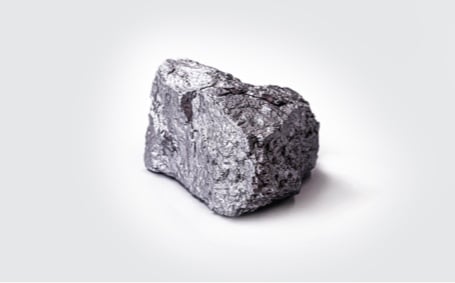
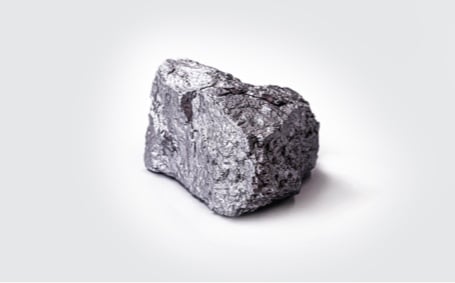






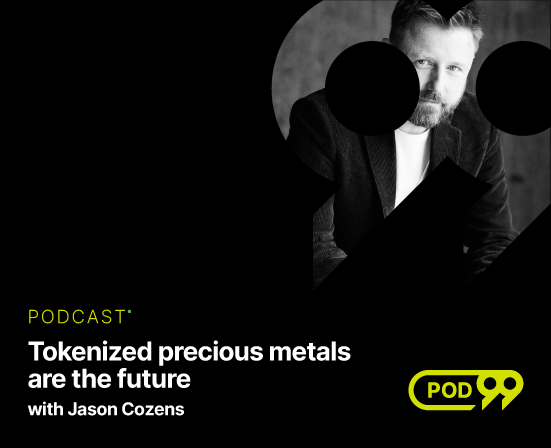


.svg)
.svg)
.svg)

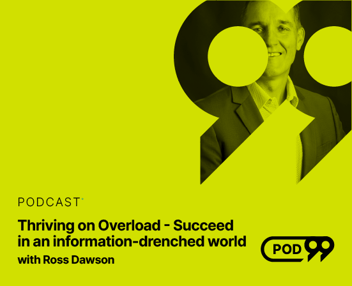
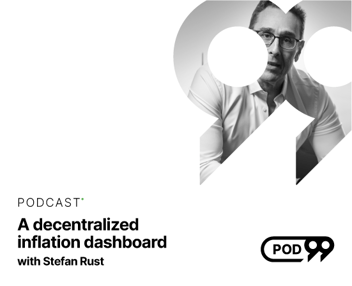
.png?width=352&name=Wealth99%20podcast%20Website%20thumbnail-Jamie%20Finn%20(1).png)